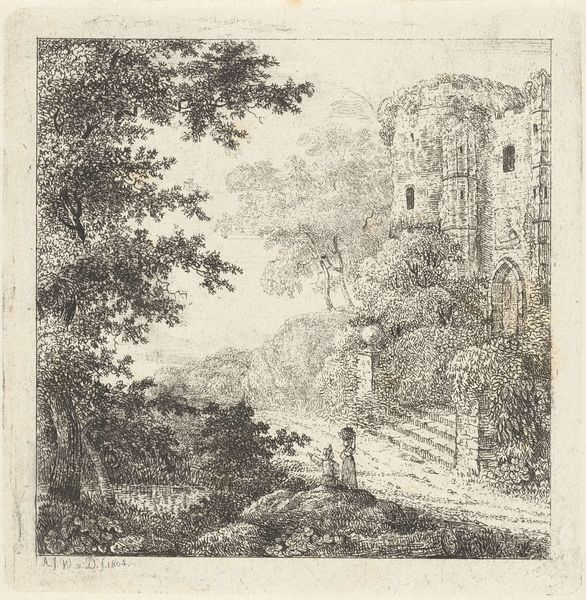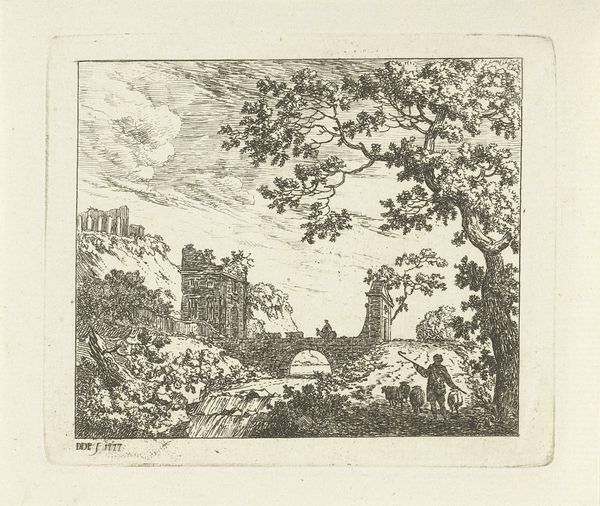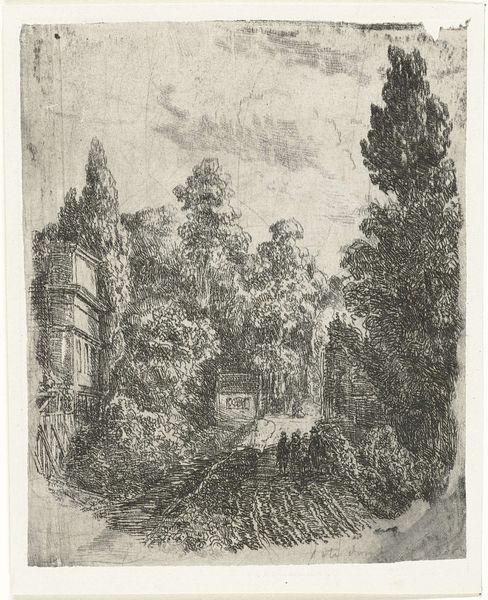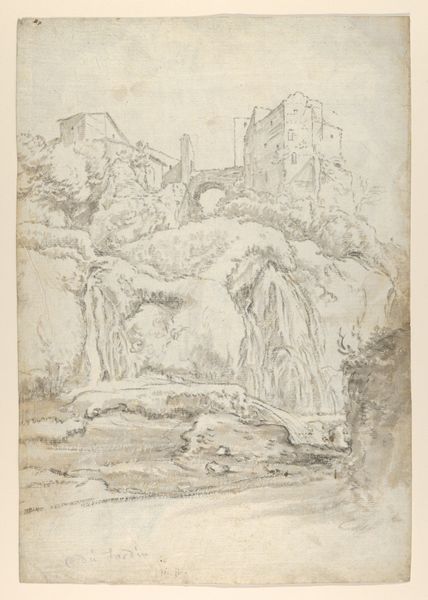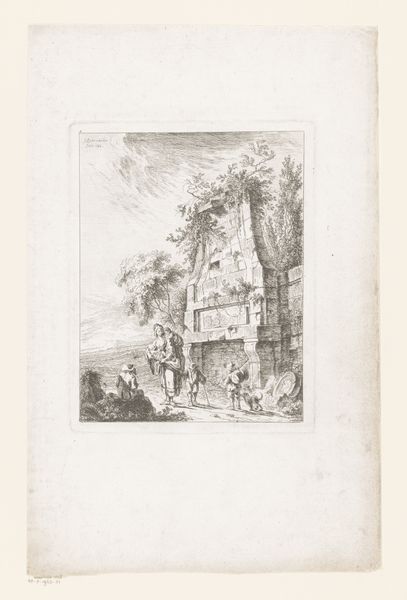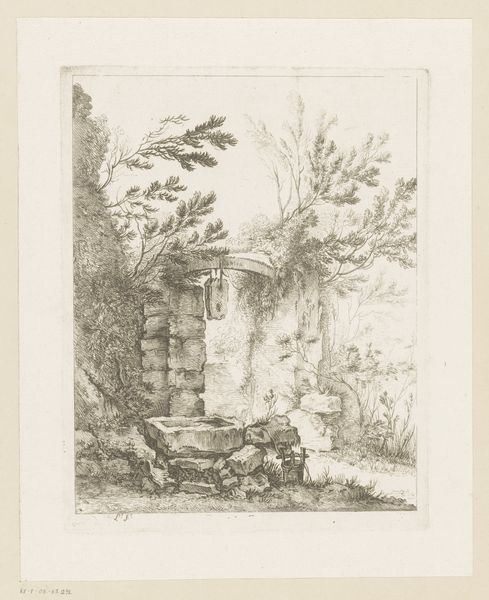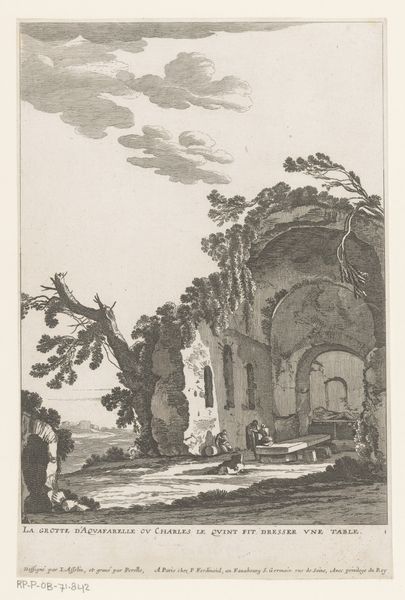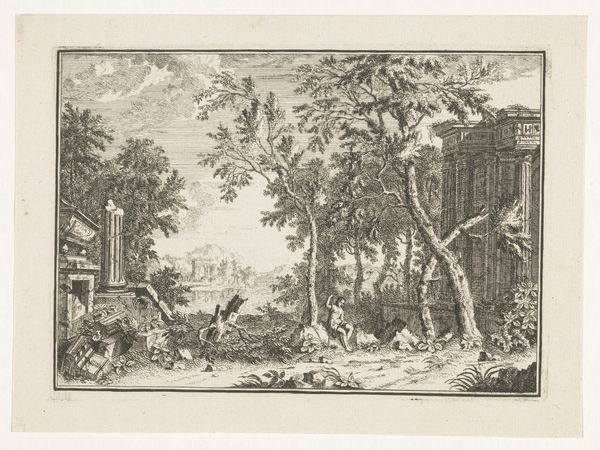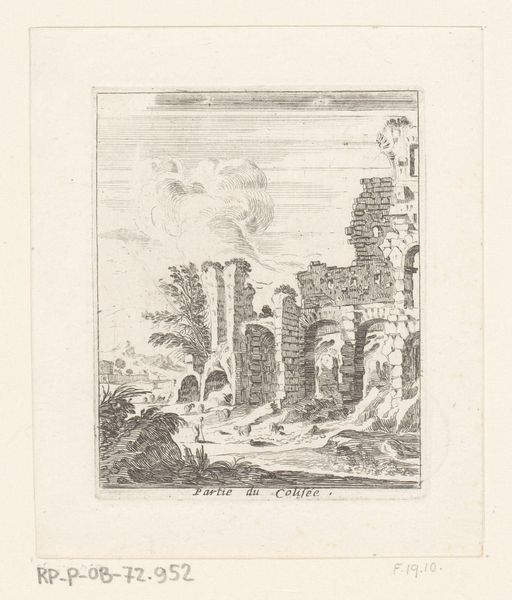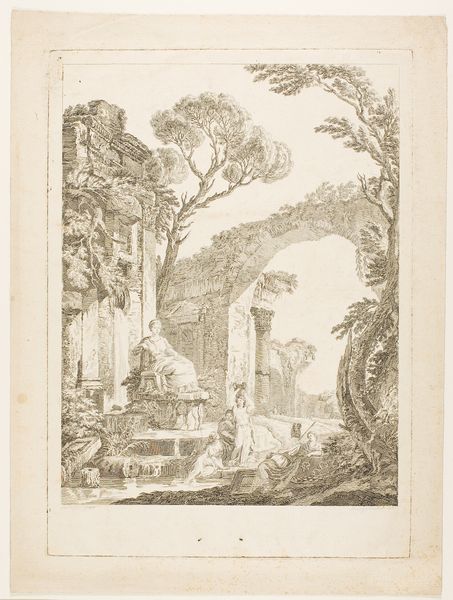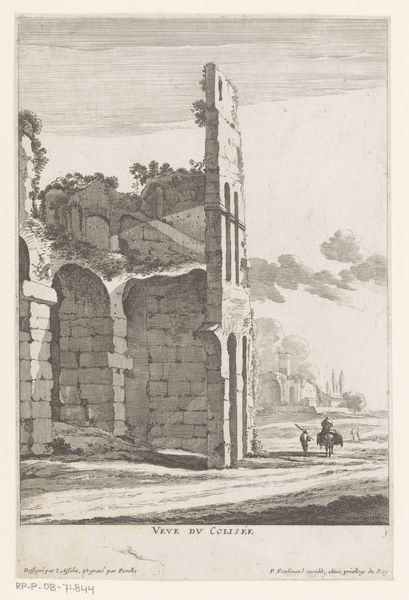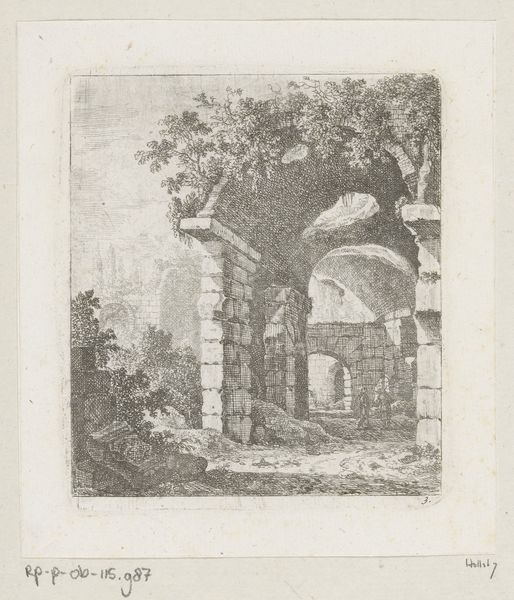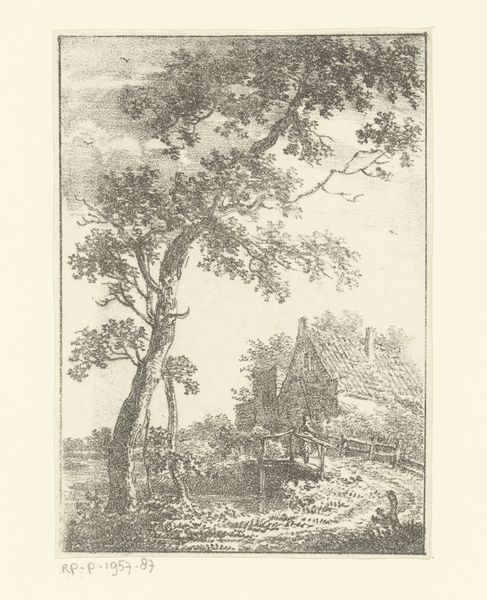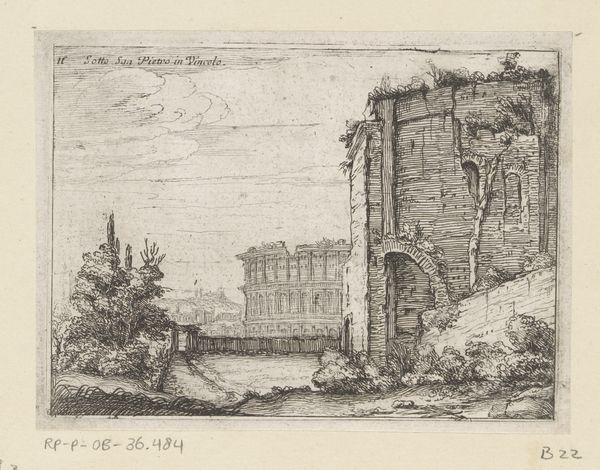
print, etching, architecture
#
baroque
# print
#
etching
#
landscape
#
etching
#
line
#
history-painting
#
architecture
Dimensions: height 86 mm, width 68 mm
Copyright: Rijks Museum: Open Domain
Editor: So, this is "Muur van een ruïne," or "Wall of a Ruin," an etching by Johann Franz Ermels, created sometime between 1651 and 1693. The scene is really quite stark; the wall dominates everything, yet it's crumbling and overgrown. What sort of narrative or feeling do you think it’s trying to convey? Curator: A ruin, particularly depicted with such starkness, is often more than just decaying architecture. The wall itself becomes a powerful symbol. Consider what walls represent: defense, division, permanence. Then contrast that with the image of decay and nature reclaiming it. It poses a powerful question, doesn’t it? Editor: In what way? Curator: Walls carry psychological weight. This wall, now ruined, what memories does it hold? Is it a memorial of loss, of vanished power, or a testament to nature’s inevitable triumph? The very texture, the lines in the etching, feel loaded. Does the texture feel like just bricks to you, or something else? Editor: It’s almost like… a prison, maybe? A grid holding something captive that's now free. The nature growing through feels like it has defeated this imposed order. Curator: Precisely! And this "freedom" also ties into its symbolic meanings. Is this ruin a bleak omen, or does the overgrowth signal hope or rebirth? Perhaps this artist believed civilizations rise and fall, and only nature persists. The image encapsulates history as an act of forgetting and remembering, destruction, and rebirth. What does it spark in you, personally? Editor: I hadn’t thought of it that way, but it feels more hopeful now. The enduring power of nature overcoming something once so imposing. Curator: Indeed. And sometimes, what’s left behind is far more evocative than the thing in its complete form.
Comments
No comments
Be the first to comment and join the conversation on the ultimate creative platform.
